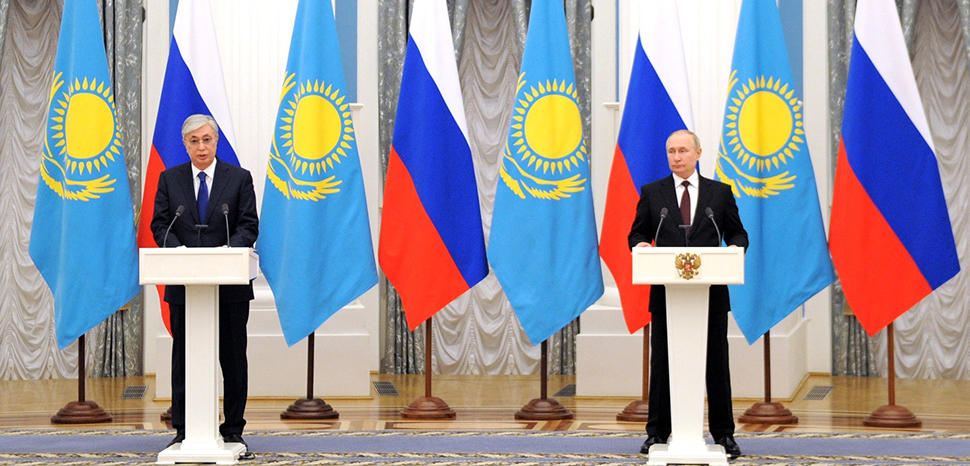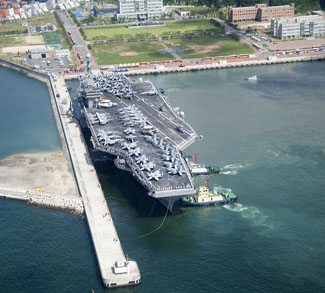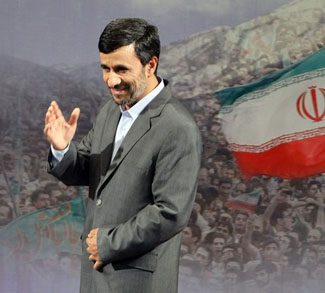As the war in Ukraine will mark its second anniversary in less than a month, Central Asia needs to maintain a balancing act given the tensions between the global powers, highlighting the necessity of respecting sanctions against Russia while also maintaining cordial diplomatic and trade relations with Moscow. Well-structured, short-, medium-, and long-term foreign policies are necessary. Kazakhstan is known for its famous multivector foreign policy, which now has to be updated into a ‘Version 2.0.’
Kazakhstan and Russia share the second longest border in the world, behind only the US-Canada border. Bilateral trade topped USD 20 billion in 2023 and will remain equally strong in 2024. Thus, Astana cannot simply replace Russia as a trade partner with another country – for comparison’s sake, US-Kazakhstan trade reached USD 3 billion the same year. Hence, it is unsurprising that President Kassym-Jomart Tokayev has announced he will respect international sanctions against Russia but not risk bilateral trade with his giant neighbor.
On 8 January, the Caspian Policy Center organized a roundtable with the US Ambassador to Kazakhstan, Daniel Rosenblum. In his remarks, the ambassador explained Washington wants “the countries in the region to… make their own choices about who to associate with, who to trade with, [and] who to have relations with without undue external pressure.”
The ambassador also discussed Kazakhstan and the sanctions, explaining that from the 45 categories of sanctioned goods, “our experts say [these products] make up less than 2% of Kazakhstan’s exports to Russia.” Therefore, even if Kazakhstan stops “completely all of those re-exports, it’s hard to argue that it would hurt their economy, or even hurt their ability to say that they’re doing a lot with Russia, given [the] robust bilateral trade in other areas.” The ambassador added that Astana can balance its international commitments while maintaining bilateral trade with Moscow. The two objectives “are compatible. The challenge is not unique to Kazakhstan” as other countries are suspected of re-exporting some sanctioned technology.
There have been some accusations by The Washington Post and the European Union, that some Central Asian individuals and companies are providing vital technology, like semiconductors or ball bearings, to Russia, which the United States and its allies have placed sanctions on since they can be utilized for military purposes. The Organized Crime and Corruption Reporting Project (OCCRP) has reported on cotton pulp from Kazakhstan and Uzbekistan being sold to Russia to produce “gunpowder and other propellants.” In mid-2023, US Senator Bob Menendez (D-NJ), Chairman of the Senate Foreign Relations Committee, sent a letter to President Sadyr Japarov of Kyrgyzstan; the letter informed the Central Asian head of state that his “government’s lack of enforcement or worse – complicit facilitation of trade with Russia… is reportedly enabling Russia to evade international sanctions.”
During a September 2023 visit to Germany, Kazakhstan’s President Tokayev pledged to respect sanctions so specific commodities are not transferred to Russia. Ambassador Rosenblum remarked “Kazakhstan’s record [of respecting sanctions first imposed in 2022] is a good one, both in terms of their ability to prevent sanction evasion and also making sure they’re complying with all the sanctions when it comes to their domestic companies’ relationships with Russian companies.” In other words, re-export of sanctioned goods is not a state policy, but rather a decision by certain businesses.
At the CPC roundtable, the US diplomat noted that it is a “tremendous effort” for Kazakhstani companies to continue surviving without violating sanctions, “we have made a tremendous effort to work with them to avoid… re-exports.” He also acknowledged that these 45 categories of sanctioned technology are extensive, so it is “tricky” to follow the sanctions without harming a company’s operations. “If [a government has] a particular problem with a particular impact [the sanction] is having on one of your local industries, come and talk to us about it,” Ambassador Rosenblum expressed. A similar opinion was made by EU Sanctions Envoy David O’Sullivan, who said in a December interview, “we do not want to harm Uzbekistan’s traditional trade with Russia. We must avoid using Uzbekistan as a platform for circumventing sanctions.” With the exception of Kyrgyzstan, US and European policymakers are taking a more diplomatic and amicable approach to encourage their Central Asian partners to respect sanctions.
The issue of how Kazakhstani and other Central Asian industries can survive, given the sanctions and the evolving geo-economic environment, is complicated. Given the disparity between Kazakhstan-US and Kazakhstan-Russia trade, Washington could not realistically replace Moscow as Astana’s top trading partner, not to mention trade with other Central Asian countries. One upcoming event to monitor is the Business 5+1, which will occur in Almaty in March. This is “a public-private dialogue platform” to discuss “barriers to doing business and usher into the region’s increased economic growth.” While the sanctions are not reportedly on the agenda, more business ties with the US could convince some Central Asian companies not to provide Russia with sanctioned commodities.
Every Central Asian country has a different relationship with Russia, so it would be wrong to generalize the situation and say “all countries” are behaving in a similar manner. Countries like Kazakhstan are willing to respect sanctions, but this is challenging, and constant dialogue with Washington and Brussels is necessary.
Wilder Alejandro Sánchez is President of Second Floor Strategies, a consulting firm in Washington, D.C. He is an analyst who monitors defense & security, geopolitical, and trade issues across the Western Hemisphere, Eastern Europe, and Central Asia.
The views expressed in this article belong to the authors alone and do not necessarily reflect those of Geopoliticalmonitor.com.




